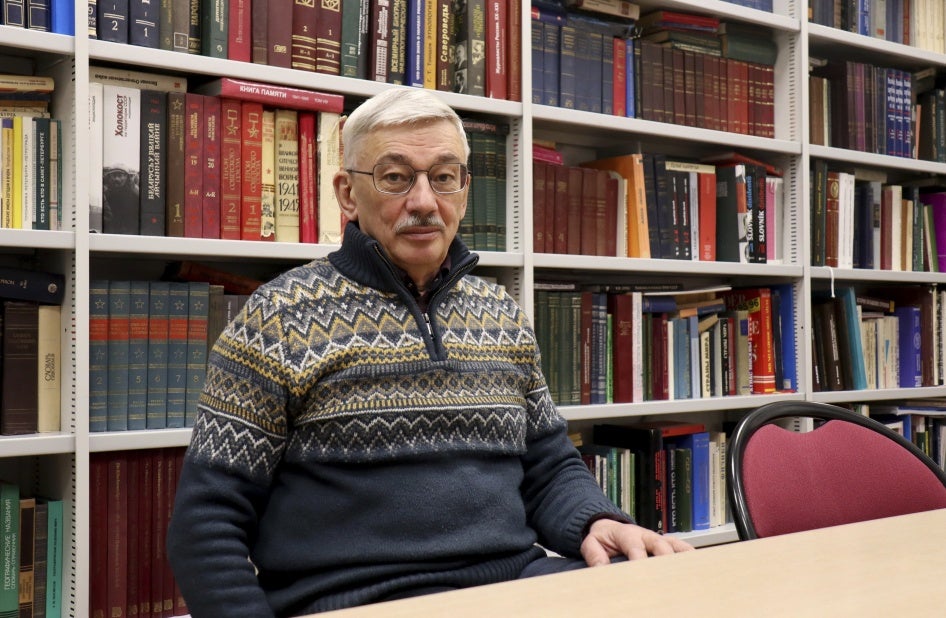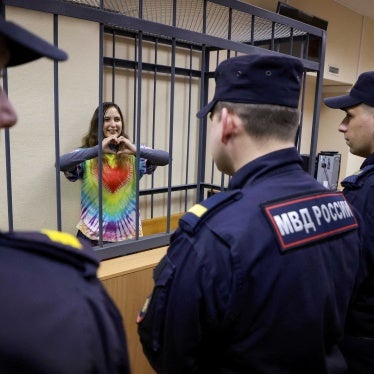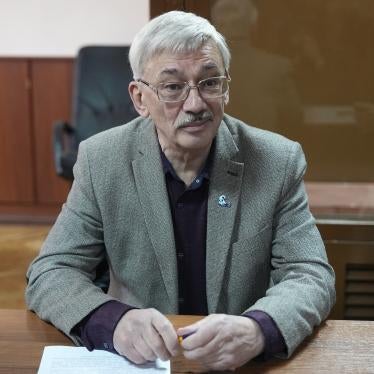Amid the Kremlin’s vicious drive to eliminate dissent, last week brought two disturbing new developments in the prosecution of Oleg Orlov, cochair of leading Russian human rights organization Memorial. The case against him, on criminal charges of “repeated discreditation” of Russia’s armed forces, had been sent for retrial last autumn.
The prosecution informed Orlov and his legal team that it would soon move to trial. The team was given all of three days to examine the seven-volume case file. Orlov appealed the prohibitively limited time frame, arguing that it hindered his capacity to prepare defense, but the court refused to extend it.
The prosecution aims to prove that Orlov repeatedly discredited the army and its “special military operation” in Ukraine with a clear intention of “undermining the authorities of [Russia’s] armed forces” by inciting hatred toward military servicemen and exhibiting “ideological enmity towards Russian traditional spiritual, moral, and patriotic values.”
On February 2, Russia’s Justice Ministry designated Orlov a “foreign agent”, a stigmatizing and severely restrictive status, giving the reasons as his opposition to the Kremlin’s war, or special operation, in Ukraine and spreading “false information about [the authorities’] decisions and policies.” The government is using the “foreign agent" law to punish Orlov for exposing the Kremlin’s human rights abuses, in Ukraine and inside Russia.
Memorial said in a press statement that the toxic designation right before the trial’s opening “cannot but influence the judge.” Also, journalists and other commentators will be obligated to comply with the foreign agent laws’ requirement to accompany “any quote [by Orlov], any reports [about his trial] with a notification about his ‘foreign agent’ status.”
The retrial itself is sheer retaliation for Orlov’s defiance. The original case against him springs from his anti-war pickets and an article he wrote in which he argued that Russia had descended into fascism. He had used every court hearing in his original trial to condemn the war and the repression. The court fined Orlov, a comparatively lenient sentence given the circumstances. Orlov appealed nonetheless, and the prosecution counter-appealed, demanding a custodial sentence.
Orlov, 70, is facing up to three years in prison and it seems that the Kremlin is set on putting him behind bars before the March presidential vote. Instead of intensifying their efforts to outlaw and silence anybody who publicly opposes Moscow’s foreign or domestic policies, the authorities should stop their cycle of retaliation and drop their appeal.









